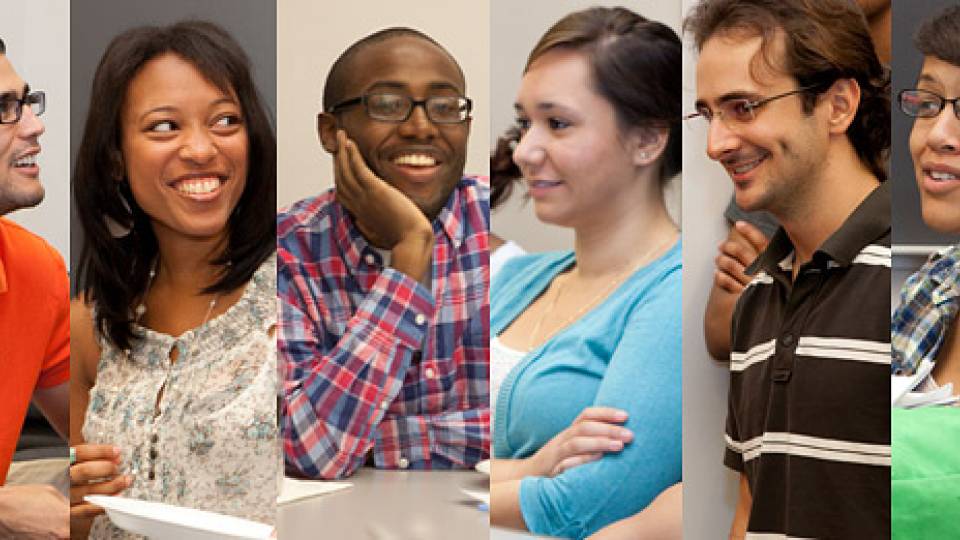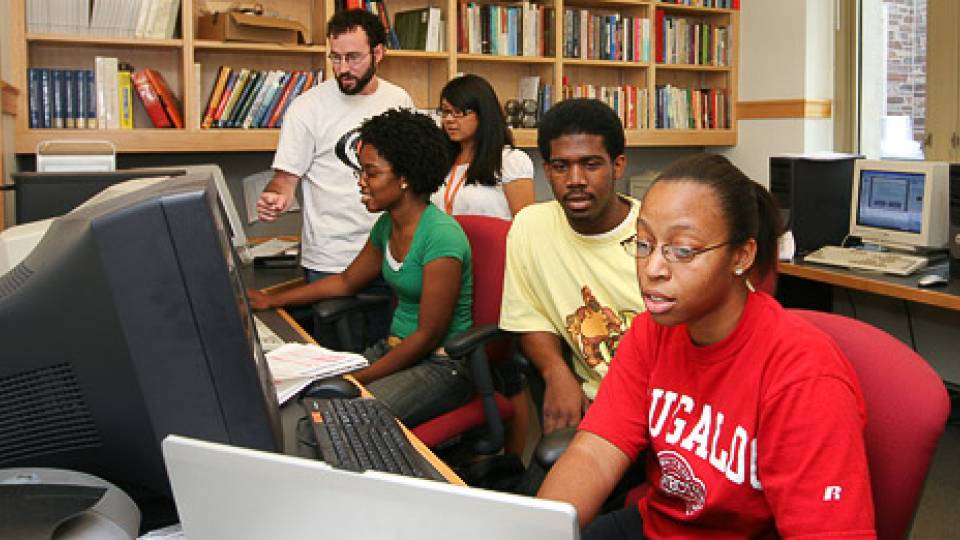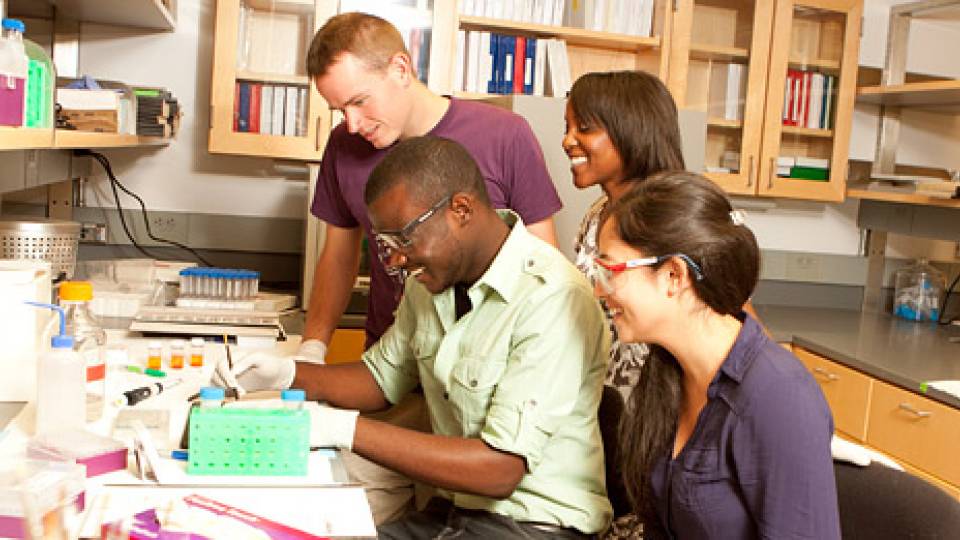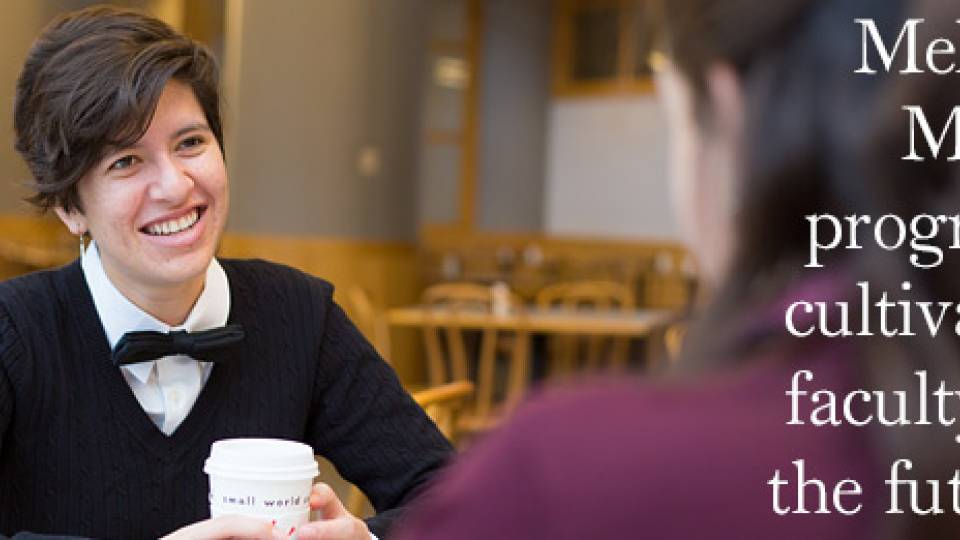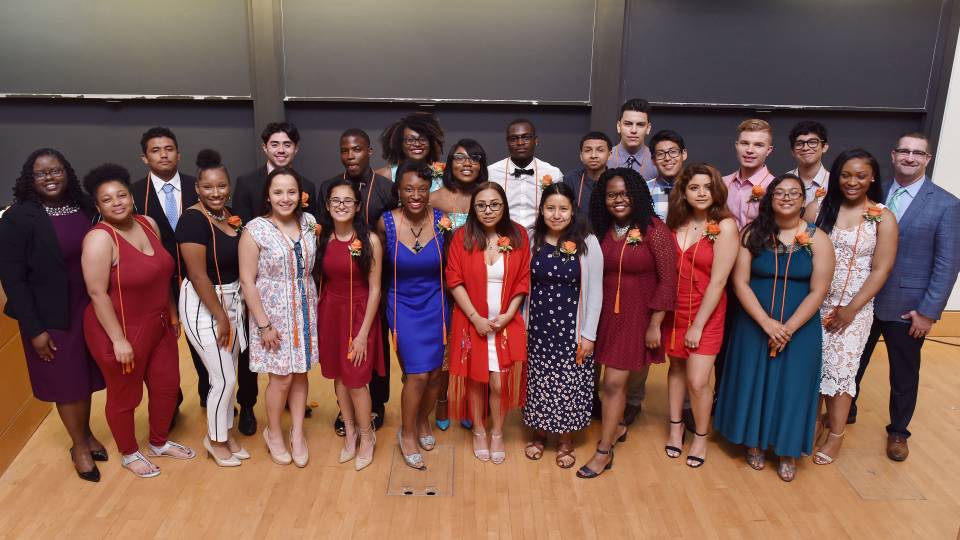Jose Martin Aveldanes, a senior sociology major at the University of South Carolina-Columbia, presents his research to his peers as part of Princeton Summer Undergraduate Research Experience (PSURE), a program the Graduate School runs for college students interested in pursuing doctoral studies. The annual program, which runs this year through Aug. 5, is designed for undergraduates who have completed their sophomore or junior years and who express a serious interest in pursuing a Ph.D. and a career in college or university teaching and research.
When Xavier Durham enrolled at the University of Texas-Austin, where he is now a senior, he had no intention of becoming an academic. This summer at Princeton University, he is exploring what such a career might look like in his key field of interest — sociology.
Durham is attending the Princeton Summer Undergraduate Research Experience (PSURE), a program the Graduate School runs for college students interested in pursuing doctoral studies.
Durham's PSURE experience has confirmed that he is on the right path. "PSURE has reinforced my desire to be an academic," he said. "I want to contribute to this body of knowledge."

When Xavier Durham enrolled at the University of Texas-Austin, where he is now a senior, he had no intention of becoming an academic. This summer, Durham’s PSURE experience has confirmed that he is on the right path. Durham’s research focus is an inquiry into surveillance and the categorization of people in Brazil.
PSURE lasts just eight weeks, but the benefits to the seven participating students from around the country will remain many years into the future. The annual program, which runs this year through Aug. 5, is designed for undergraduates who have completed their sophomore or junior years and who express a serious interest in pursuing a Ph.D. and a career in college or university teaching and research. Undergraduates who are historically underrepresented in academia or those who attend public institutions are especially encouraged to apply.
Research projects undertaken in two disciplines this year are delving into the ethics of care and personhood after the onset of Alzheimer’s disease, the contributions of black youth activists to the present-day democratic transition of Tunisia, and government discourse on "normalistas" (teachers' college students) in rural Mexico, among other topics.
This year, all seven students are based in either the Department of Sociology or the Department of Philosophy. This allows students to engage closely with their peers through informed conversations and to collaborate with the faculty mentors in the program, according to Julie Yun, assistant dean for diversity and inclusion in the Graduate School and the program's director.
At the start of PSURE, students are matched with Princeton faculty, and supported by postdoctoral researchers and graduate students. Over the course of two months, the undergraduates are mentored through research projects that illuminate the rigors and challenges of independent research required of those seeking doctoral degrees.
Additionally, PSURE includes a research seminar, lectures, group discussions and activities that teach the students about many aspects of graduate school, including workshops on the application process and funding, as well as a class designed to prepare them for the Graduate Record Examination. Students also practice presenting their research at the annual symposium of the Leadership Alliance, a national consortium of student summer research programs held July 28-30 in Hartford, Connecticut.
"PSURE gives students access to world-class resources and world-class faculty who prepare them to be competitive as candidates to any graduate program to which they apply," Yun said.
"In so doing, we also meet our institutional goals to diversify the academy," she added. "Innovations don't happen when you have the same ideas from the same pool of people. If there is a huge disparity between who we are training to be leaders and the population at large, the question begs itself: Are we really reflective of the population we are trying to serve?"

At the start of PSURE, students are matched with Princeton faculty, and supported by postdoctoral researchers and graduate students. Over the course of two months, the undergraduates are mentored through research projects that illuminate the rigors and challenges of independent research required of those seeking doctoral degrees. From right to left are three of this year’s mentors: Tod Hamilton, an assistant professor of sociology and the Charles G. Osgood University Preceptor; Patricia Fernández-Kelly, a professor of sociology; and Miguel Centeno, the Musgrave Professor of Sociology and a professor of sociology and international affairs.
Collaborations with professors and peers
Durham has been mentored this summer by Miguel Centeno, the Musgrave Professor of Sociology and a professor of sociology and international affairs. Centeno encourages and prepares his mentees for a future as scholars by "exposing them to the rigors of research, giving them tips about the 'informal rules' of the application process and offering advice about academic life," he said.
Durham's research focus is an inquiry into surveillance and the categorization of people in Brazil. "Professor Centeno has helped me narrow my research question, facilitate my critical thinking and make my work accessible to the broadest audience possible,” Durham said.
Zakiya Browne, a senior sociology major and Spanish and Africana studies minor from the University at Albany-SUNY, has spent her summer working beside Dalton Conley, the Henry Putnam University Professor in Sociology, on the role of public policy in addressing issues related to gentrification and education in African American communities.
Browne said the PSURE experience has been meaningful and unlike any scholarly experience she has had. "Being in an academic space with other people of color is very powerful," she said.
Browne said that such an environment has allowed her and her peers to have conversations not only about sociology, but the "fine balance between who we are individually, and how to excel in academia," she said.
As an adviser, Patricia Fernández-Kelly, a professor of sociology, said she values the eye-opening possibilities PSURE provides students. She urges students to consider the career paths that may result from obtaining a Ph.D., and to question the more practical aspects of their interest in graduate school. "There is a difference between consuming knowledge and producing knowledge, which is the expectation for graduate students," she said.
"I want my advisees to really understand what this kind of work is like, and what opportunities lie open to them,” she said. Fernández-Kelly said it is important for students to understand the job market for academics of color and to begin tailoring their decisions in light of those realities.
"The academy [currently] does not look like America," Centeno said. "I see this mentoring as work that is critical to my mission as an academic, and to the academy. To the extent that they can, programs like PSURE make us a more democratic society."

